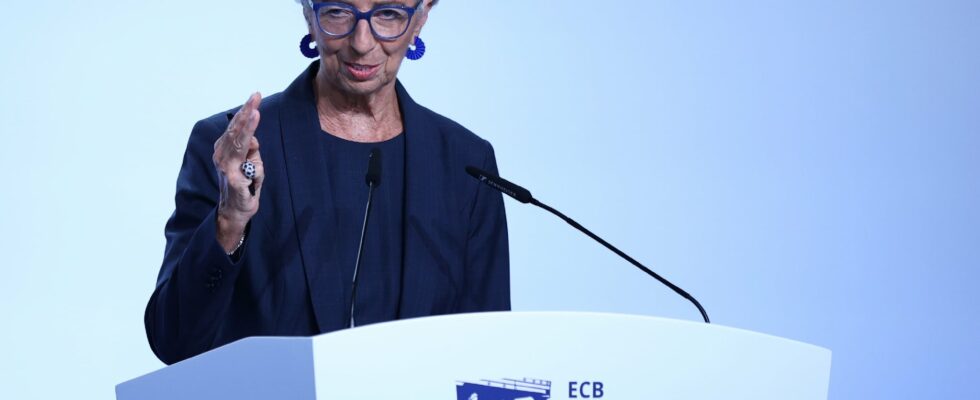A new relaxation in a row. After a similar decision in September, the European Central Bank (ECB) decided on Thursday October 17 to further reduce its key rates. This new 0.25 percentage point reduction brings the deposit rate, which serves as a benchmark for credit conditions in the economy, to 3.25%. The ECB was reassured by inflation falling to the lowest in three years in the euro zone, where it is now growth that is considered worrying. Growth prospects are “downwardly oriented,” ECB President Christine Lagarde said on Thursday.
The disinflation process “is well underway”, fueled by a sluggish economy, estimate in a press release the 25 members of the Board of Governors meeting in Ljubljana, the capital of Slovenia, for this annual delocalized meeting. They are taking the opposite view from the caution displayed a month ago: they then gave the impression of wanting to wait until December to loosen the monetary screw again.
But since then, the evolution of consumer prices has reassured supporters of rate cuts: inflation in the euro zone even slowed more than expected in September, to 1.7% over one year, compared to an initial estimate of 1 .8%, Eurostat announced on Thursday. At the same time, worrying signals have accumulated for the economy of the Old Continent, encouraging a reduction in rates in order to revive consumption and investment.
Breath of fresh air for households and businesses
Even the defenders of the strictest monetary orthodoxy had shown themselves open in recent weeks to further loosening. “Growth is even weaker than in the ECB’s forecasts revised downwards in September, while inflation is returning to the target faster” than expected, noted Deutsche Bank analysts. In September, for the first time in more than three years, inflation fell below the 2% threshold, the objective set by the Frankfurt monetary institution. “The evolution of inflation is part of the good news,” commented this month the head of the German central bank, Joachim Nagel.
On the bad news side, Germany, once the locomotive of European growth, now expects another recession this year. The German government has just revised its growth forecasts downwards, expecting a decline of 0.2% in GDP this year in Europe’s largest economy, after a contraction of 0.3% in 2023.
In the euro zone, private sector activity contracted in September for the first time in seven months, weighed down by the end of the Olympic Games effect in France.
Most economists predict that the ECB will decide on further cuts at its following meetings, even bringing the deposit facility rate down to 2%. Once returned to this level, the euro zone’s monetary policy would be considered neutral, meaning it would neither slow down nor stimulate the economy. Thursday’s drop will “not be the last”, the governor of the Bank of France, François Villeroy de Galhau, anticipated in early October. However, the Governing Council did not commit on Thursday to the continuation of monetary easing, which will be based “on economic data”.
The ECB sharply raised its rates in the wake of the post-Covid-19 recovery and then the war between Russia and Ukraine, which caused energy prices to soar. It began to lower them again in June, bringing a breath of fresh air to households and businesses, likely to support consumer credit, the currently sluggish real estate market or investments.
